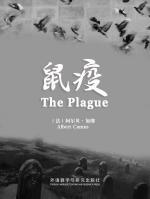愿警钟长鸣
There was a plague in Oran, and we are also going through a "plague". Although there is a long time between them, and also a difference between illusory reality, we can still see the attitude of different people in the plague.
At the beginning, it was similar to that in China. The plague came quietly, but the people were indifferent to their own affairs, the officials hesitated and slighted, the rumors were noisy, but they could not grasp the main points. On the contrary, it was a few doctors who bravely revealed the truth that people accepted the arrival of the epidemic step by step.
Compared with the support of the people in Wuhan, the people in Oran are more desperate, just like waiting to die. The whole city is filled with a sense of despair mixed with the smell of corpses and disinfection. It is often mentioned in the novel that "in these days abandoned in the depths of memory, entertainment places are still bright.". With the city blocked, news isolated, the outside world is only concerned about the life and death of Oran indifferently. In this case, many people choose to be depressed and get drunk day and night, which is also reasonable.
But what touches me most is that the novel depicts such flesh and blood people who, like cactus standing in the desert, choose to face and fight the plague directly. Rieux, the protagonist of the article, is also a hypothetical narrator, a selfless doctor who works day and night, and a whistleblower who bravely reveals the fact. The leader of the volunteer team, Tarrou, the strongest man, fell ill at the dawn of victory, and even at the end of the day he was fighting the plague for his life. The writer, Glenn, runs through the whole text. He considers the sentence and arranges the work in busy in the end he has survived and deleted all adjectives to indicate liberation. There are also the contradictory but determined journalist, Rambert.
"I’m losing the match." Tarrou said before he died. Did he really lose? When the survivors embraced each other, they had a joy they had not experienced for many days, but those who yearned for it found that they had conquered the plague and achieved nothing. Except Tarrou. He gains peace, a meaningless peace, at the cost of death. The reason why people who want something finally feel that they have nothing to gain even if they survive is because they are longing for things they can't reach.
The writing style of the article is somewhat depressing, the ending is not satisfactory, and the sadness is diluted by people's joy, but that is what we called "reality". No one's death is worth it, nothing to celebrate, just the dissipation of grief. After reading the full text, I can't think of any specific plot. I only remember the hopeless pain, the picture of people being thrown into the pit, the night conversation between Rieux and Tarrou, and the living lives.
Human beings are always repeating the same mistakes, but history is advancing in twists and turns



 京公网安备 11010802032529号
京公网安备 11010802032529号